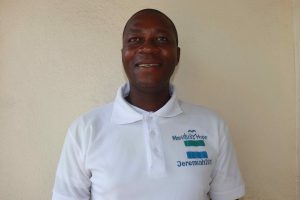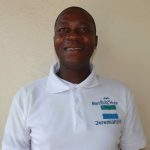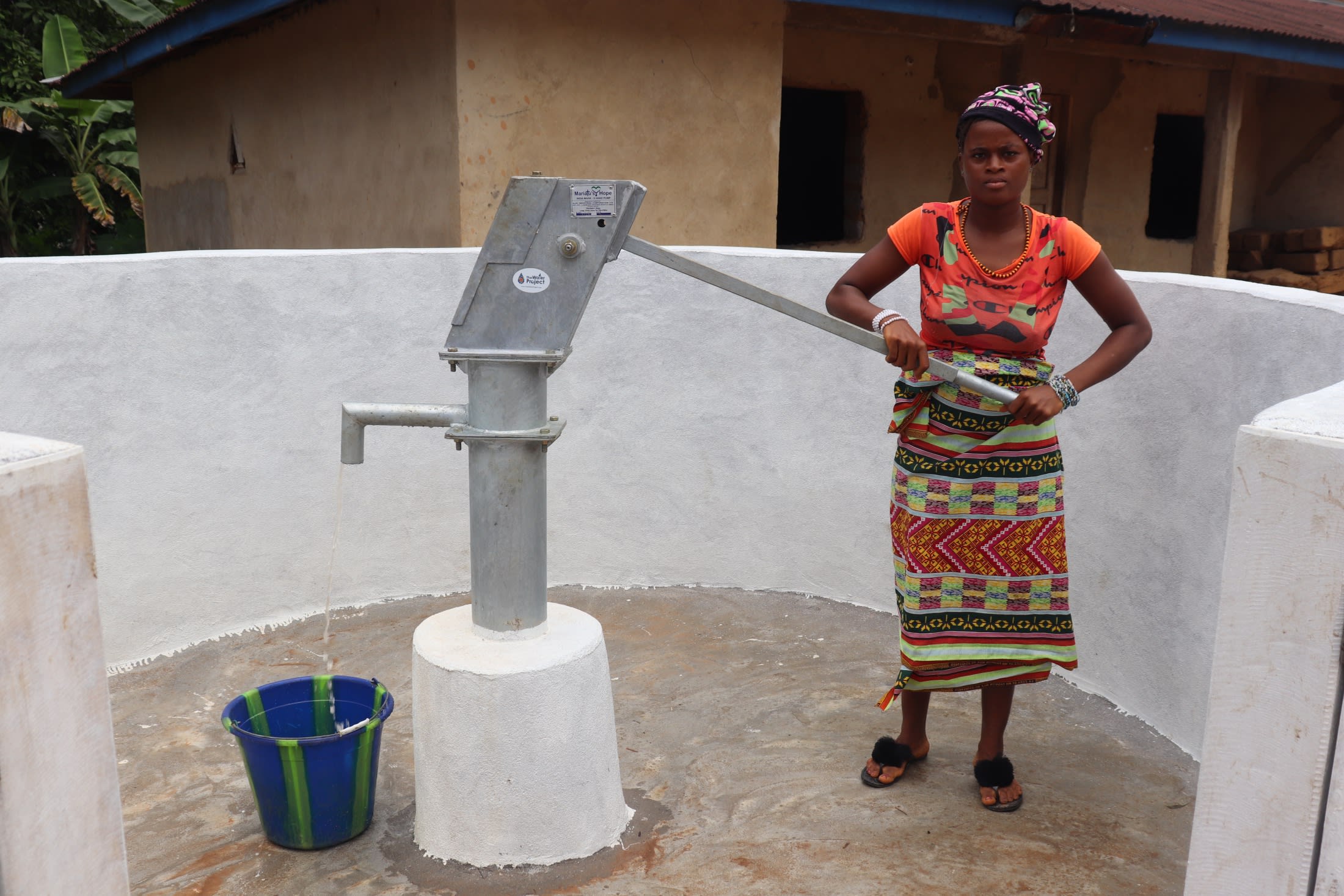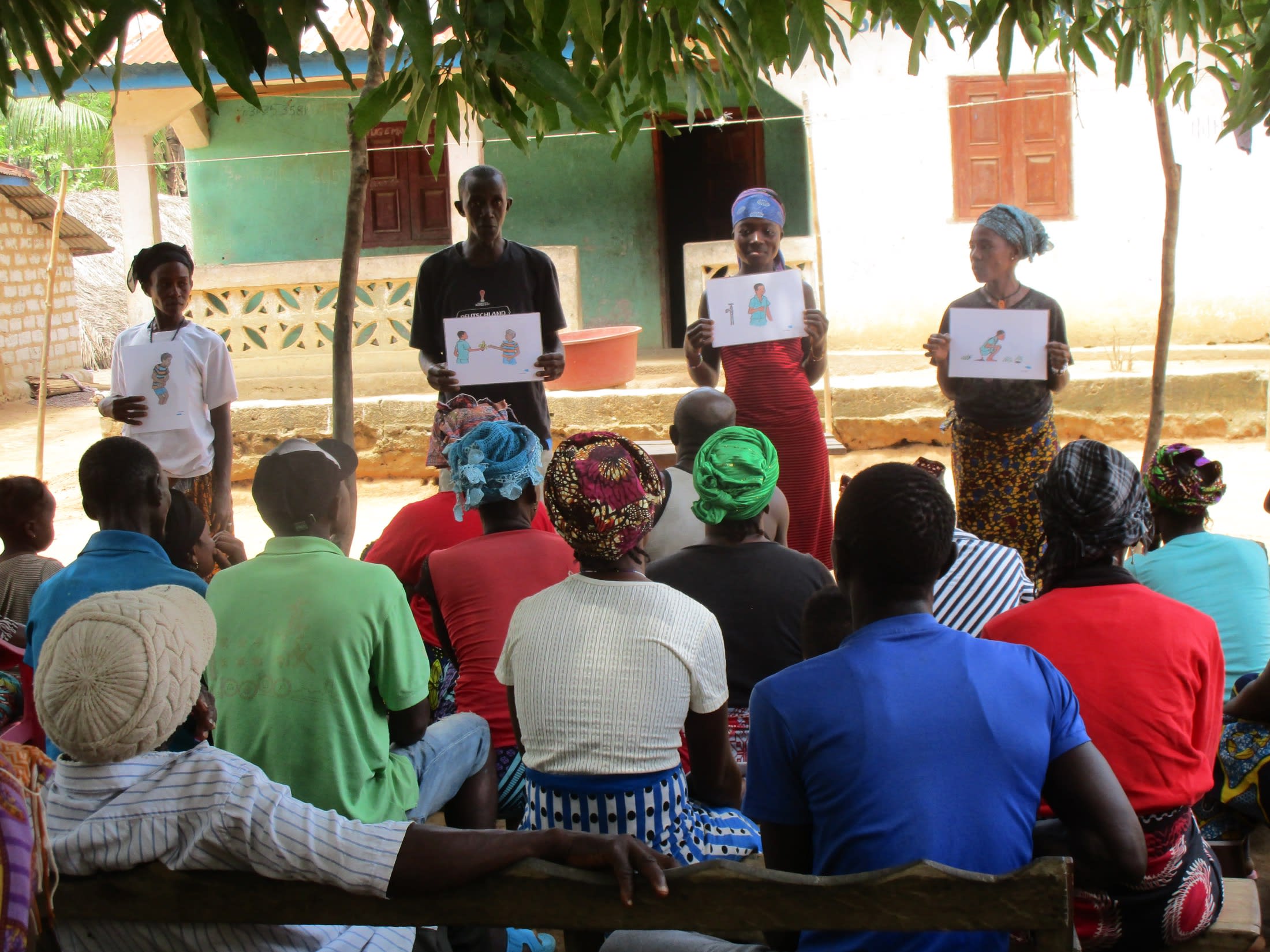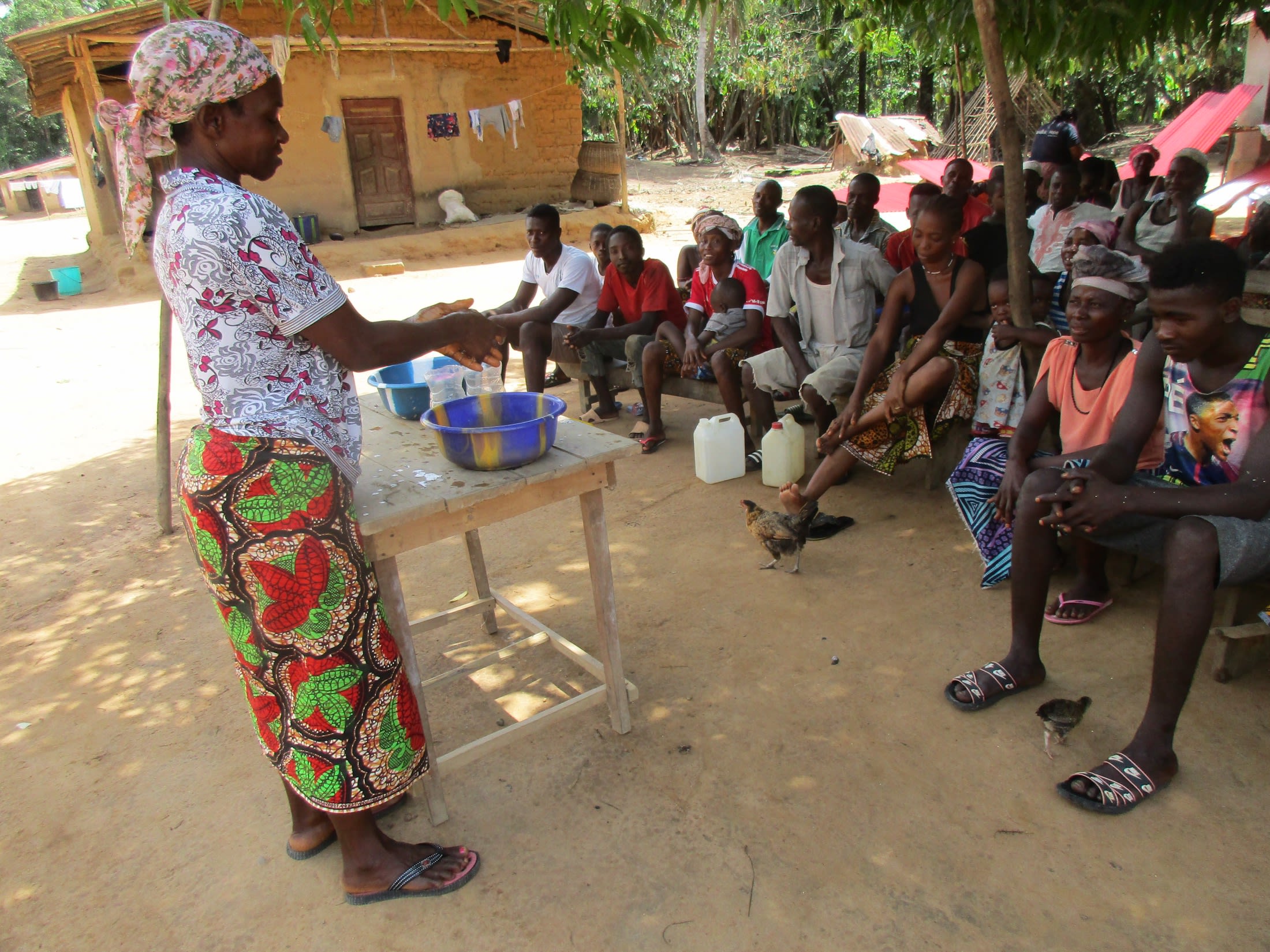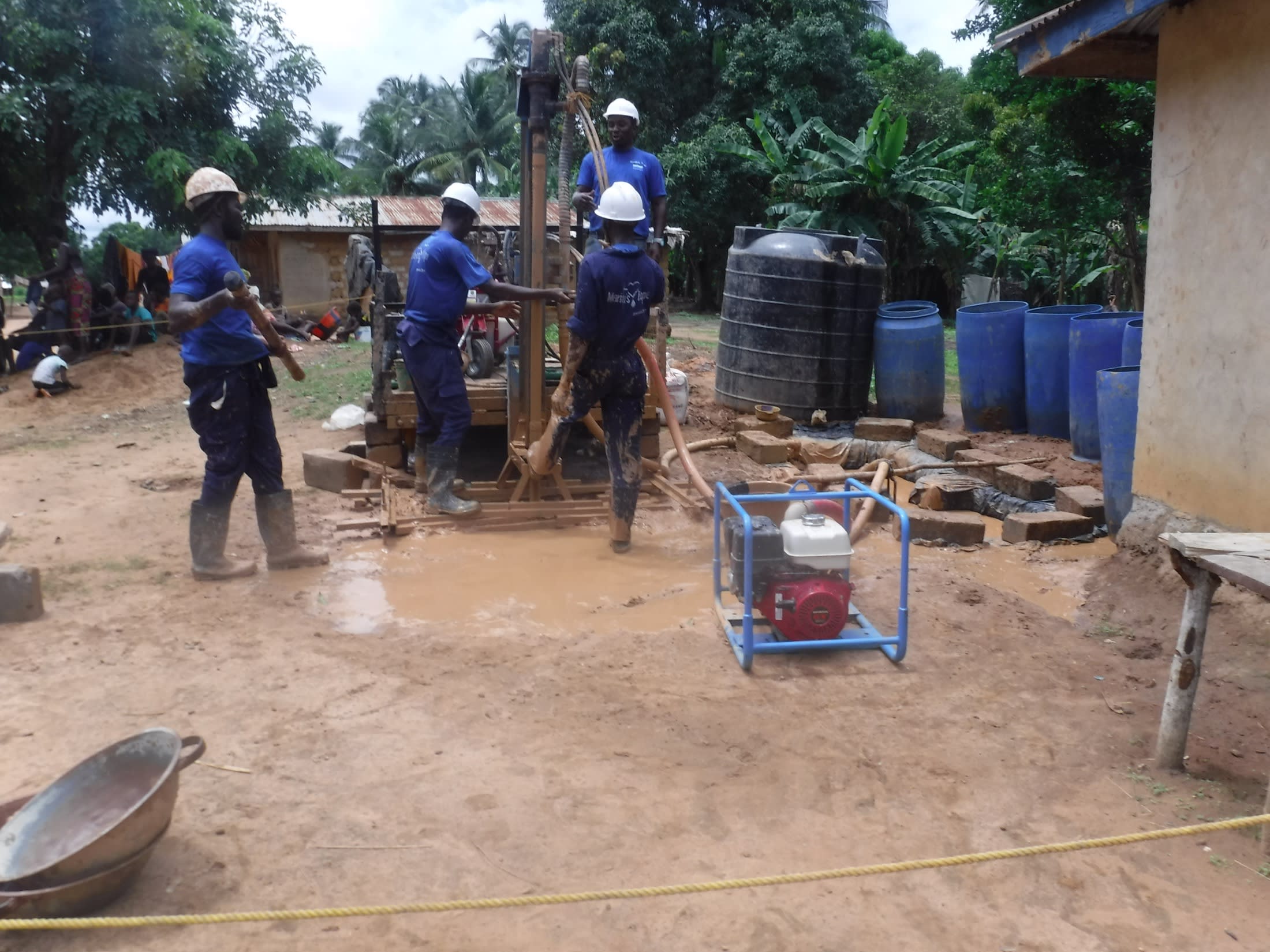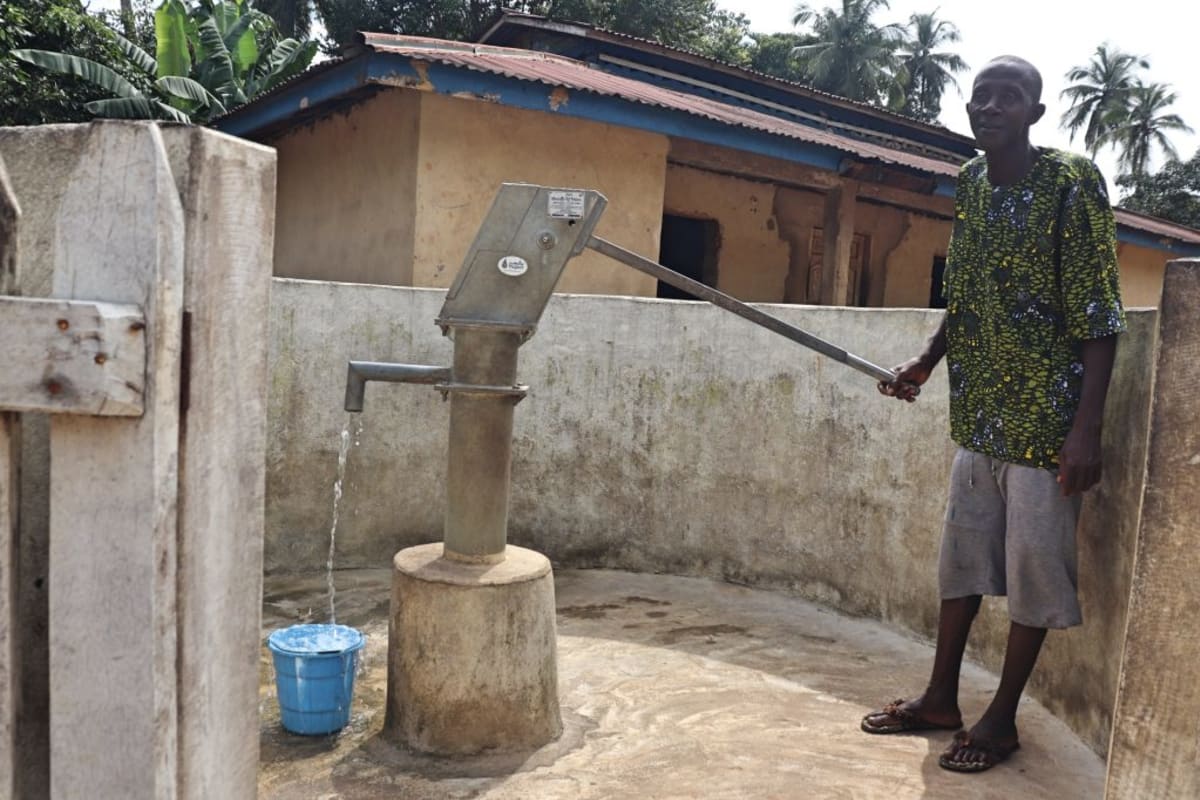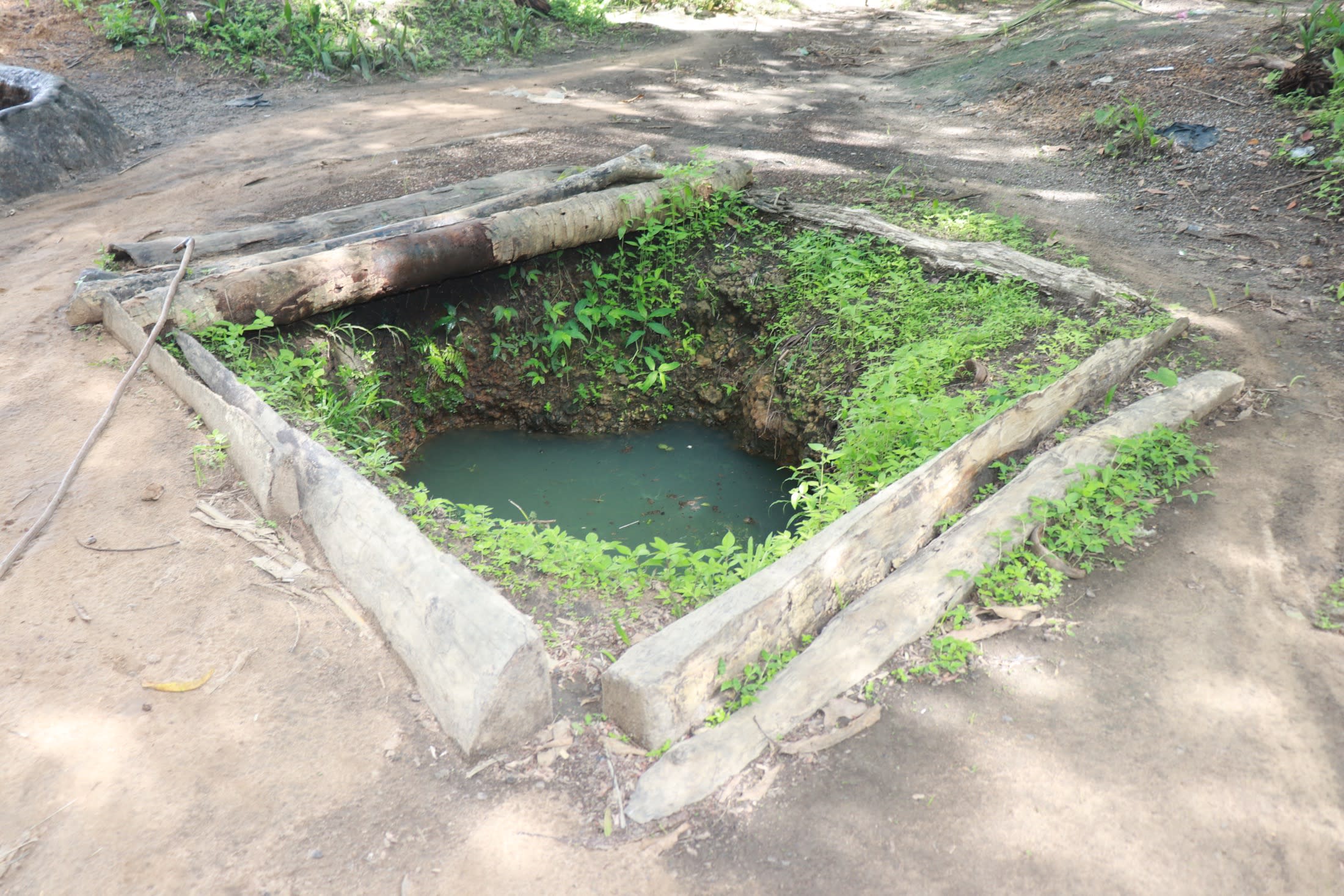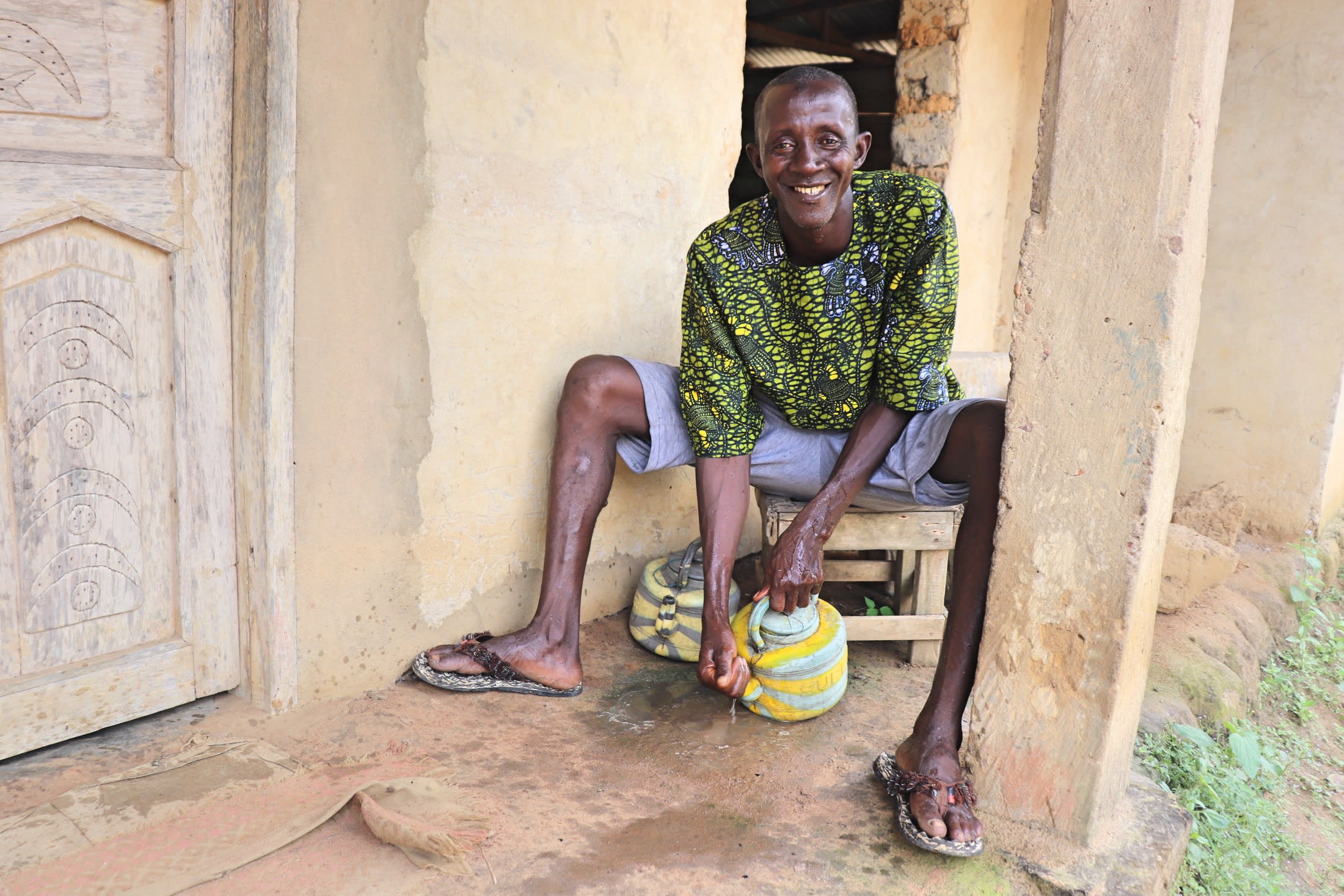In the coastal community of Mayonkoh, its 400 community members rely on the water they can collect from an unprotected dug well. Many travel up to an hour each way several times a day to try and collect sufficient water.
Several dangers confront those collecting water. The road to the water point is dangerous, with snakes and crocodiles hiding in the bush. The path can become quite treacherous to navigate in the rainy season when it becomes muddy and slippery. And people are at risk of falling into the huge open hole, especially children.

The water well is exposed to various kinds of contamination; area runoff, trash, animals that drink and defecate near the source, and people bathing and washing laundry nearby. These factors lead to community members suffering from water-related diseases such as cholera, typhoid fever, dysentery, and diarrhea.
Waterborne illnesses make children like Sinnah, B., age 16 (shown below), miss precious time in school. "I have learned that drinking water from an open water source leads to water contamination like cholera and diarrhea. Most often, I am affected by water sicknesses which can also result in absences from school for [a] few days."

There is never enough water to serve the community. The well refills very slowly, especially during the dry season, so families must prioritize water for drinking before domestic activities like farming, bathing, laundry, and cleaning. The ability to produce food or an income suffers due to insufficient water.
 Mohamed Sankoh, age 45, a local farmer and fisherman, shared, "Our source of drinking water is a surface water hole dug. We fetch water to do our domestic activities such as cooking, bathing, and laundry. This source is very challenging to access, and it dries every year unless we must dig more depth before we can access water again. This water source cannot serve entire community members due to [the] low quantity it provides in the dry season. This water situation is a burden on us, more especially my children."
Mohamed Sankoh, age 45, a local farmer and fisherman, shared, "Our source of drinking water is a surface water hole dug. We fetch water to do our domestic activities such as cooking, bathing, and laundry. This source is very challenging to access, and it dries every year unless we must dig more depth before we can access water again. This water source cannot serve entire community members due to [the] low quantity it provides in the dry season. This water situation is a burden on us, more especially my children."
Most community members depend on rainwater harvesting during the rainy season because the dug hole becomes flooded, making it dirtier and more challenging to access. However, storing the collected rainwater until the dry season causes further issues because it is unsafe for drinking after being kept for so long.
The proposed well with a handpump project will be located near the mosque in the center of the village, making it accessible for all, and provide clean, safe water to the community throughout the year. Reducing the time and energy community members spend collecting water will allow them to do other endeavors and improve their daily lives.
What we can do:
New Well
Where we will be drilling is centrally located and will relieve many people of the long journey to fetch water and the challenge of accessing clean water.
Our team will drive over the LS200 mud rotary drill rig and set up camp for a couple of nights. Once the well is drilled to a sufficient water column, it will be cased, developed, and then tested. If these tests are positive, our mechanics will install a new India Mark II pump.
By drilling this borehole, Mayonkoh and the surrounding community will be provided with plenty of accessible, clean drinking water.
Training
There will be hygiene and sanitation training sessions offered for three days in a row.
Community members will learn how to make a hands-free handwashing station called the "tippy-tap." We will use these tippy taps for handwashing demonstrations and will also teach about other tools like dish racks and the importance of properly penning in animals. We will highlight the need to keep restrooms clean, among many other topics.
This training will also strengthen a water user committee that will manage and maintain this new well. They will enforce proper behavior and report to us whenever they need our help in solving a serious problem, like a pump breakdown.

 Borehole Well and Hand Pump
Borehole Well and Hand Pump
 Rehabilitation Project
Rehabilitation Project








